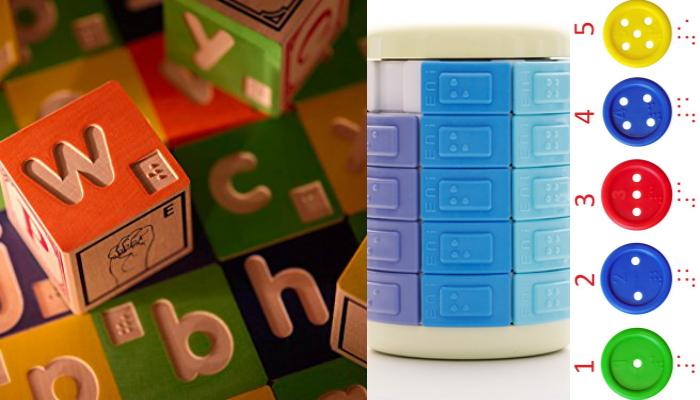Bullying: A Parent’s Perspective on Raising a Blind Child

I’m sure you’ve thought about your child’s future social interactions with children her own age and how her blindness might impact her ability to make friends and might even target her as an easy child to bully.
Even though you see a perfect, wonderful little child, you know that other kids will see someone who is different, and it’s difference that usually motivates kids to act out, ostracize, or even bully other children.
I’m not saying that this is always the case because a very important factor to consider is how your child responds to other children. But it’s important for you to teach your child how to react to bullying now so that they can avoid the torment of the play ground!
Why Do Children Bully?
Bullying is a problem we all face and I imagine every parent has to deal with the same fears when it comes to bullying—even the bullies’ mums must worry that someone bigger and harder might come along. And every child has the capacity to be bullied, to meet someone faster or more powerful, richer or more popular. But there can’t be a much more tailor-made victim than the child who cannot see.
Bullies feed off of insecurity and redirect their own poor self esteem by picking on children who are in some way different than the rest. And blind kids really fit the mold. In the first place, it is very quickly obvious that a child is blind, sometimes because of blind-isms, nystagmus, or prostheses, but more often because the blind child does things a different way, like walking with a stick, having specialist classroom assistance, or spending more time with the teacher.
It has certainly been my experience that the children more likely to indulge in this behavior are unhappy and sometimes profoundly damaged children who have no one there to act as good parents and role models, but it also seems self evident to me that as the parents of visually impaired children, this is not our problem.
It would be easy to try to explain this behavior to your child, making the bully the focus of the remedial action. But if you are the parent of a blind child you do not have time to focus any energy on the aggressor in this relationship because it will take all your time and understanding and patience just to provide for your child a worthwhile protection that he can build on and rely on.
I believe a bully could focus on anything at all, essentially the cause of the bullying is random. Combine this with the bully’s lack of complaint about work load—they can just as easily bully one child or twenty; it’s the job satisfaction that keeps them motivated and they always have room on their schedule for one more little one—and you have the perfect recipe for disaster.
How Do You Protect Your Child from a Bully?
 It may have occurred to you (it certainly did to me) to homeschool your child. I will not be doing that. My child will have as normal and happy a life as anyone else and I will fight the school system’s flaws vociferously from within.
It may have occurred to you (it certainly did to me) to homeschool your child. I will not be doing that. My child will have as normal and happy a life as anyone else and I will fight the school system’s flaws vociferously from within.
The thing that really worried me about homeschooling was what happened if I was hit by a truck and spent six months in hospital? My daughter would be “thrown to the wolves” in whichever school had room in an emergency and my plans would have been for nothing.
So here’s my plan for my daughter such as it is: Make sure the first time she is bullied is the last. It is crucial to the well being of children that they have a strategy and that it works. If she had had normal eyesight the strategy would have involved running and shouting. But running is not an option and she still needs to look after herself.
Following are some strategies that will help you prepare your child for the realities of bullying:
- Teach Self Esteem. In order for your child to have the benefit of good self-esteem, she must see it modelled, be accepted unconditionally for who she is, and be valued just for being herself. To that end, for my child, a good pre-school seemed to be the best way to go, and certainly this has been invaluable for her.It provides even more long-term benefits if the children in nursery class are the same kids that comprise the first school class; that way the children have been playing, socializing, and learning together from a time before they had a true concept of the differences of others and therefore display a simple, profound acceptance that they eventually give to, and expect from others.
- Make Yourself Known to Your Child’s School. Visit your child’s school and acquaint yourself with their anti-bullying policy. Find out how they implement these policies. Are they current best practice? What are the drawbacks? Do they work? Can you meet other parents with experience of the bullying policy in action?Also make certain they know that you are a proactive parent who only wants the best for her child and has nothing more important to do with her time than make sure that a good all-round school experience is what her child gets. It’s amazing how often this approach negates problems before they even happen (the thinking is perhaps, “We’ll have to deal with that because you know that parent will make a fuss!” And they are right!)
- Enroll Your Child in Extra Curricular Classes. Another way to enhance self esteem is through self defense classes or dance and drama classes. This is also an excellent way for your child to meet more kids her own age and develop a greater social network.
- Teach Your Child How to React. What does a bully want to see? They want your child to cower or cry. They don’t want your child to talk back, make a joke, or act nonchalant about the whole ordeal.Bullies want the easiest route to their satisfaction so making sure your child responds in such a manner as to make it unrewarding to continue with this behavior seems the quickest way to make the bully reassess your child as a soft target; if it seems more trouble than it’s worth they will be reluctant to target this child again. So make sure it is!
- Teach Your Child to be Nice. This is also an appropriate opportunity to speak with your child about the differences of others because conversely you don’t want to be enabling your child to be displaying the very behavior that would make her an intimidating or feared classmate!
From Lambs to Lions

A study done in Britain in 2005 found evidence that a seven to eight year old wearing glasses or a patch was 35-40% more at risk of physical bullying regardless of the degree of visual impairment, and to my mind this suggests that it is not a case of if bullying starts, but when it starts.
Prevention may be better than a cure, but you cannot have a guarantee of prevention. However, you can be sure that your child has a straightforward way of dealing with bullying in the event that it does happen.
I recommend dealing with this issue before it becomes a problem and I suspect I could be accused of removing a little of my daughter’s innocence. I firmly believe that this is not the case; What I am doing is equipping her to deal with the behavior of other children in a manner that will ensure her safety.
I would have done this had she not been visually impaired; I believe that because she is registered blind it is imperative that she has a realistic expectation of the world as it is and not an unrealistic expectation of the world as we would all like it to be. I am exposing the most beloved person in my life to the vicissitudes of the rest of the planet; I will not be providing them with a sacrificial lamb.
Read this article in Arabic: قراءة هذا المقال بالعربية

Related Posts

Eye Conditions and Syndromes, Visual Impairment
Neuralink Announces Plans to Restore Sight to the Blind with Brain Chip
Elon Musk’s company Neuralink has announced plans to begin human trials of its new “Blindsight” brain chip by the end of 2025.

Visual Impairment
The Gift of Understanding: How a Young Child Helps His Blind Father Navigate Life
When a parent is blind, it’s natural for people to wonder how their sighted child will adapt. Will they struggle to understand their parent’s needs? Will they feel burdened by...

Braille and Literacy, Toys, Visual Impairment
24 Braille Toys for Kids Who are Blind
Everything from alphabet blocks to raised line coloring pages and activity books to puzzles to card and board games... and so much more! And it's all in braille ready for...